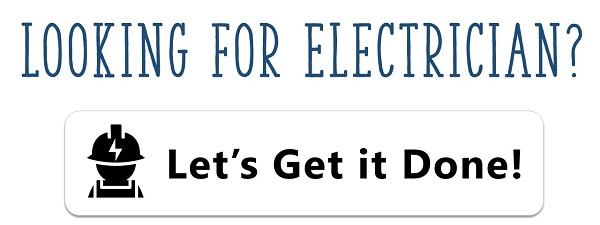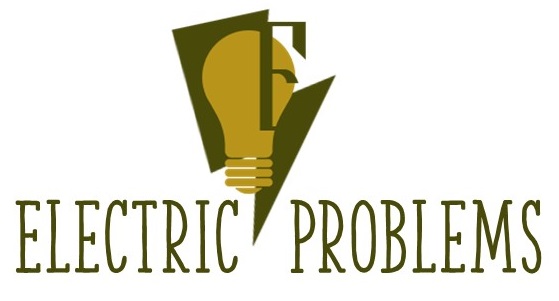![]()
Generator vs Solar Panels [Which One to Use?]
DISCLAIMER: AS AN AMAZON ASSOCIATE I EARN FROM QUALIFYING PURCHASES. THIS POST CONTAINS AFFILIATE LINKS THAT WILL REWARD ME MONETARILY OR OTHERWISE WHEN YOU USE THEM TO MAKE QUALIFYING PURCHASES. FOR MORE INFORMATION, PLEASE READ MY EARNINGS DISCLAIMER.
Both solar panels and generators have advantages and disadvantages, they operate in quite different ways and their objectives are different. You would NOT rely on a generator to keep your home running all year, as well as bringing solar panels to a job construction site would not be practical.
Solar panels can be used as a long-term power source that needs a significant investment but is well worth the effort in the long run. Generators, on the other hand, can be used as a power supply in situations where a power grid is not unavailable or down.
Many people think that if you disconnect from the public utility grid and switch to solar, you will be protected from power outages. Usually, this is not the case. Most people are CONNECTED to the grid even if they use solar panels.
This means that just like all the neighbors who are connected as well, you will lose electricity delivered to your house in the event of power disruption (due to an emergency). Your solar system will be shut down to allow a safe environment for people who will be working on power lines.
Even if you generate your own electricity, in many cases during low- or no-production hours (such as at night when the sun sets) the power will be taken from the grid. Any additional energy that you generate will be sent back to the power grid.
On the other hand if combine your grid-tied solar PV system with a set of batteries, even though your device will disconnect from the grid, but your battery will immediately begin powering your house. So, is having a solar system worth it? Let’s find out!
Here is a full financial breakdown:
![]()
As far as RV’s go, it needs to be assessed on a case-by-case basis. Can the panels be used often enough to justify their cost? Is there enough space for a panel? How much energy would you require?
Here is a nice video and honest opinion of why you may NOT need a solar system in your RV:
![]()
And this is the recommended inverter generator from the video – Honda EU2000i (paid link), sold on Amazon.
Why use solar?
In a normal situation, even if you use solar panels, your home always needs to be connected to a power grid. This is actually a good thing! If there is not enough sun or during night hours, your house will still have electricity available and the best part, they will give you credit if you send them some electricity back!
In a situation where you would like to be connected to the solar 27/7, you will need a set of lithium batteries to store your excess power. You can use this energy from batteries during periods when solar production is minimal, such as at night.
The benefits of using solar include:
- It’s quiet. No additional noise, humming, or anything…
- It’s a clean energy source.
- It’s a renewable energy source.
- You can use it 24/7 (at night also if you have batteries).
- Qualifies for certain federal tax credit programs.
- Very low maintenance
Drawbacks to using a solar system include:
- It takes space. The roof is the most usual place for setting up a solar system, and most people are fine with that (they have enough space if they have a house). Space for batteries is another consideration. If you are on the road and want to use solar, make sure your setup (on available roof space) can provide you with the power you need.
- It’s expensive and requires a professional installation. Solar energy has been about 20% cheaper over the last five years, but it is still very expensive. The average solar panel costs around $15000 (including installation) with an average cost of $3 per watt. Compare that to the price of fuel in your area. Now, how long you can use the generator for the price of one solar panel?
- NO batteries – no electricity during power outages! This only applies if you will be connected to the grid as well. Your solar system will be turned off during a power outage, leaving you without power (just like everyone else).
So, the point is, that while you may be able to generate your own energy, your home is still grid-dependent. When the power goes down, utility company MUST protect their workers that are working on high-voltage lines and if your grid-connected solar system will send even a little bit of power through the lines back, they will be lethally electrocuted right on the spot!
Even though using solar panels instead of a generator is definitely more cost-effective in the long run, it may be quite unreasonable cost-wise for your specific situation, especially if you don’t have enough roof space!
Why use a generator?
Unlike a solar power system (where you are usually connected to a local grid), a backup generator provides a small, low-voltage circuit in a very small location, allowing it to operate during a power outage. Just be sure to stay within your generator’s voltage and amperage limits, as drawing too much power will cause it to overheat.
To generate electricity, power generators mostly use fossil fuels such as natural gas, gasoline, diesel, or propane. They are usually placed outside can detect when the power goes out for automatic operation
Using a generator is a very common solution for a power backup system and usually preferred over solar panels. Here is why:
- Generators are less expensive to buy, vs solar systems, which are quite expensive. Adding batteries to that will include extra space needed, maintenance required, and of course, extra money to spend.
- There are a variety of choices available, ranging from a small portable to a whole house standby
Some cons of having a fossil fuel generator backup include:
- Maintenance costs. It needs to be tested on a scheduled basis, the oil needs to be changed (just like in a car) and certain parts replaced when obsolete. This varies according to the type of generator you would like to use.
- Fuel costs. Any fuel consumed during the time used. Although if you compare it to the cost of solar panels upfront, this price is not that significant.
- It makes noise. Generators are noisy. In the case of a portable inverter-generator, you will only have to deal with a gentle humming sound.
Good quality generator, if you maintain it well, will last anywhere from 10k to 30k hours (or up to 3.5 years if operated continuously). If you live in a house with a natural gas connection and only need a backup system during power outages, a standby backup generator may be the best choice for you.
If you intend to power your home 24/7 and during a power outage entirely with renewable energy, you will need a solar system with a backup battery. Of course, if you live in a windy area, you may want to use that to your advantage and combine solar panels with wind turbines.
In conclusion, if you really want to go “green and clean” investing in solar is the way to go. Just make sure that you understand that this is an investment in your future and will only save you money in the long term.
The generator is the way to go, only if you need a power backup system during emergencies. You can either use a portable generator for your critical loads or a full-size standby generator to power your whole house.
Another interesting thing to consider is a Solar Generator! Did you know that you could use both and replenish the Solar Generator’s battery with another generator (in a situation of a cloudy day)?

Click on the white button above to find your electrician!



